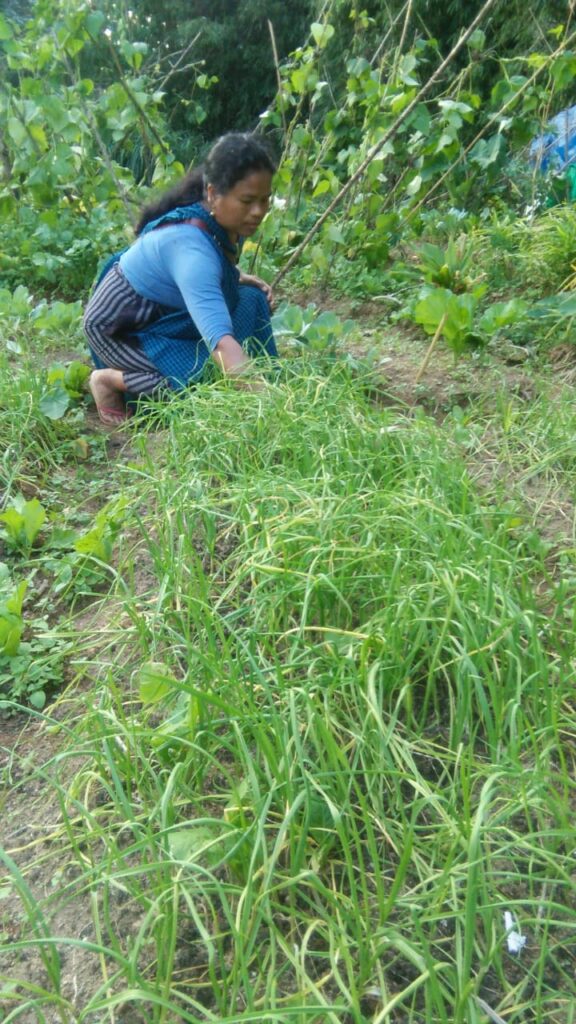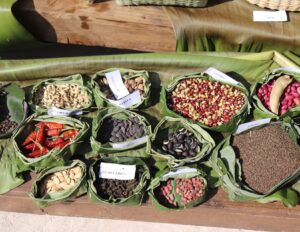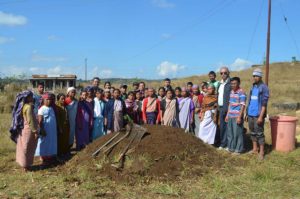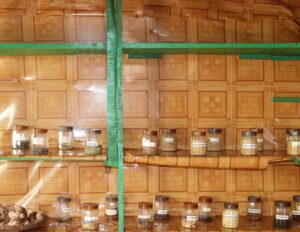Farmers from many walks of life are beginning to explore different farming methods; composting has come to the forefront of this and many tried and tested ways of the past are taking the limelight off late with the advent of natural fertilizers and the knowledge regarding the harmful effects of chemical fertilizers and pesticides.
Kong Shak Dkhar who is a 38 year old farmer and ALC (Agroecology Learning Circle) member from Cham Cham in East Jaintia Hills has learnt many methods of composting from her elders over the last 13 years, ever since she started farming. Although, she only began recognizing the benefits of natural methods of composting over the last four years. According to her, the most reliable composting method has been the ‘Goat Manure Method’ which has yielded the most results in the last 4 years especially in the farming of garlic. The method has some clear and simple steps; the farmer must first begin with clearing the land and plucking all the weeds from the area at least one week prior so as to eliminate the pests from that area. After a week has elapsed, goat manure is mixed with the soil and is left for 2-3 days if the manure is wet. If in case the manure is already dry, then the garlic is sown and then the whole preparation is covered with banana leaves. After about 3 days or so, the covers are removed; in another month, the leaves are plucked and half a gram of ash is spread across the area to improve the size of the garlic.

Over the years she has cultivated many crops such as radish, cauliflower, bean varieties and many more. She has disseminated her knowledge and expertise regarding this kind of composting with many other farmers of the village who have also benefited; this has helped all of them to curb the purchase of chemical fertilizers. Another important result of using this kind of composting method is that the soil has seen a massive change in fertility and health for the better. Besides the goat manure method, there are also other composting methods such as the ‘Rice Straw Method’ which she would recommend which involves burning the rice straw and mixing it with animal manure.
Kong Shak expressed, “I would urge fellow farmers to practice this composting method as this is one of the traditional ways to enhance the growth of food crops rather than the use of chemical fertilizers”. This entrepreneurial and self-sustaining attitude is what is helping Kong Shak Dkhar and many other farmers to carve a niche and grow healthy produce.
Cham Cham is an active partner community of NESFAS in the ongoing project “Empowering Indigenous Communities through Agroecology Learning Circles (ALCs) for resilient, integrated and innovative natural resource management”, which is supported by MBMA and funded by the World Bank.



